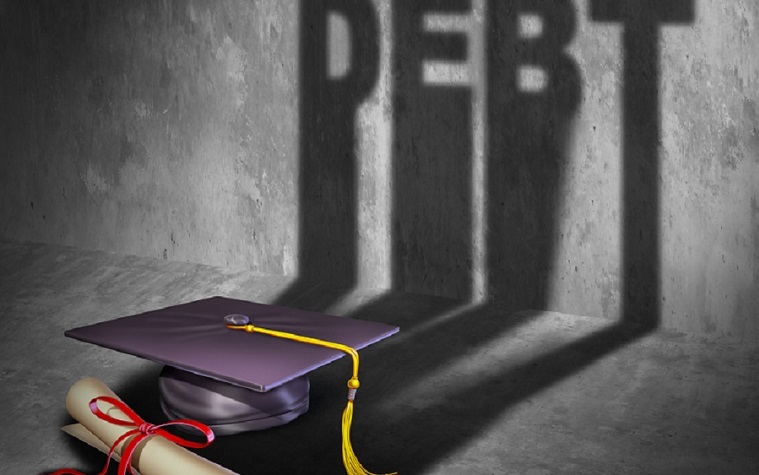Proposed new federal rules on student debt forgiveness could trigger a sharp rise in lawsuits against colleges and even force institutions to close, the U.S. Chamber of Commerce has warned.
The Department of Education proposed the new rules to make it easier for students to apply for debt forgiveness if they can prove an institution was involved in “misleading, deceitful and predatory practices.”
Primarily designed to target for-profit colleges, the rules were proposed following the collapse of Corinthian Colleges. Opponents of the new rules believe nonprofit colleges will face an increase in law suits.
The chamber, and its Institute for Legal Reform, have expressed deep concerns that the new rules will lead to a flurry of such suits, and identified the bar on mandatory arbitration, in certain circumstances, as a key issue.
Lisa Rickard, president of the chamber’s Institute for Legal Reform, said the proposed rule on arbitration would make it more difficult to resolve disputes with students “efficiently and in an accessible way.”
“Thus, they would raise the costs of education at those institutions — costs that ultimately would be borne by the students the Department seeks to protect,” Rickard wrote in a letter to the Department of Education and seen by the Higher Education Tribune.
Rickard strongly urged the department not to adopt regulations restricting arbitration, both “as a matter of policy and also because the department has no legal authority to regulate the use of arbitration agreements.”
She argued the proposed regulation of arbitration agreements is bad policy.
“For many individuals injured by wrongful conduct, arbitration is an easier and less costly means of seeking redress than the complex and slow-moving court system, where obtaining relief is far more expensive and takes considerably longer,” Rickard said.
“Second, any regulation limiting arbitration agreements would be invalid, because the Department lacks the authority to override the federal statute — the Federal Arbitration Act (“FAA”) — that protects the enforceability of arbitration agreements in the absence of an express indication of congressional intent to displace the FAA. Congress has not authorized the department to supersede the FAA.”
The draft rule relating to arbitration would prevent a school from forcing students to use arbitration in relation to the students' federal direct loans or the educational services the school provided.
But it would not prevent a school from requiring arbitration and prohibiting participation in a class action lawsuit for other types of claims, largely because of the Department of Education’s limited powers of enforcement.
Cheryl Oldham, the chamber’s vice president, education policy, believes one rogue lawsuit could trigger the department to take action to force an institution to close down.
“One rogue lawsuit filing – no matter the topic or the likelihood of success – could trigger the Department to take action that could ultimately force an otherwise successful institution to close down,” Oldham wrote in her letter to the department. “This constitutes an open invitation for litigation by anyone with an axe to grind with any school, anytime, anywhere, for almost any reason.”
She added, “Adding enormous paperwork and compliance requirements that apply exclusively to these schools would amount to nothing more than just another gratuitous, last-ditch effort to eliminate for-profit colleges and universities entirely."
The aim of the new rules is to make it easier for borrowers to access loan forgiveness and gives the government more powers to hold schools accountable, and force them to pay restitution.
Under the rules, colleges and universities must provide warnings to students about poor loan repayment rates and set aside money for loan forgiveness.
The government can also forgive students' debt when they claim they were defrauded by their institution. The new regulation could lead to the discharge of $42 billion over the coming decade, according to the department’s own estimates
Approximately 10,000 individuals and institutions wrote to the department ahead of the Aug. 1 deadline for comments on the proposed rules.


 Alerts Sign-up
Alerts Sign-up